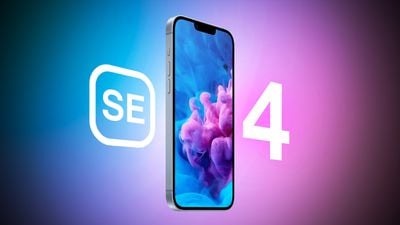Following our last in-depth report on the iPhone SE 4, MacRumors has received additional information which further confirms the claims made in our previous article.

The iPhone SE 4, also known by the device identifier D59 and project codename Ghost, is a continuation of Apple’s budget-oriented line of iPhones, and is expected to replace the current third-generation iPhone SE.
With the arrival of the fourth-generation iPhone SE, Apple plans to finally retire the aging iPhone 8-style design used for the previous two generations of the iPhone SE. Instead, the iPhone SE 4 will feature a more modern look and increased display size, closely resembling the base model iPhone 14.
Newly obtained specifications indicate the iPhone SE 4 will use a modified version of the existing iPhone 14 chassis, with the same flat design. The dimensions of the iPhone SE 4 in its current stage perfectly match those of the base model iPhone 14. Recent findings also confirm that the fourth-generation iPhone SE will not include a Touch ID home button, instead featuring an all-screen design derived from the iPhone 14, with Face ID serving as the means of biometric identification.
To better illustrate the size difference between the iPhone SE 4 and the current iPhone SE third-generation, we have included the dimensions for the iPhone 14 and iPhone SE 3, respectively.
iPhone 14 dimensions and weight:
- Length: 146.7 mm
- Width: 71.5 mm
- Thickness: 7.80 mm
- Weight: 172 g
iPhone SE 3 dimensions and weight:
- Length: 138.4 mm
- Width: 67.3 mm
- Thickness: 7.3 mm
- Weight: 144 g
The iPhone SE 4 is expected to be lighter than the iPhone 14 by about 6 grams, weighing 165 grams. The change in weight is likely a result of the single-camera design Apple has planned for the device. Unlike the iPhone 14, the iPhone SE 4 will feature a single 48-megapixel rear camera, developed under the codename "Portland", with a custom backplate for the device to account for the design change.
The decision to use a single-camera design lines up with all previous models of the iPhone SE, with the flash located in a similar position as well. It’s worth emphasizing that there is significant evidence that backs up the single-camera design, with Apple’s internal documentation highlighting it as a key change from the iPhone 14.
Apart from the single-camera design, no other significant factors could impact the weight of the iPhone SE 4. No changes in materials are expected, with the fourth-generation iPhone SE using the same 6013 T6 aluminum found in the iPhone 14, along with a glass backplate. Prototypes of the iPhone SE 4 have been seen in a black color closely resembling the Midnight color variant available for the iPhone 14, suggesting that black will be one of the color options Apple plans to offer with the fourth-generation iPhone SE.
Although the chassis dimensions of the iPhone SE 4 remain identical to that of the base model iPhone 14, the device will bring two significant features greatly differentiating it from previous iPhone models – a multi-purpose Action button and a USB-C port.
The Action button is a user-configurable button located above the volume buttons, first introduced with the iPhone 15 Pro, where it replaces the mute switch. Current information suggests that Apple intends to make the Action button a standard feature across the entire iPhone 16 range, with it eventually being available on the iPhone SE 4 as well. The current development status of the fourth-generation iPhone SE suggests a potential release date of 2025.
While Apple is experimenting with an all-new capacitive Capture button for the iPhone 16 range, there are no indications that this feature is being tested on the iPhone SE 4. The Capture button is expected to remain exclusive to the iPhone 16 lineup.
It is important to remember that the information presented here is pre-production information and may not reflect the hardware found on final mass production units, as changes are always possible during development.
For more details on what to expect, check out our guide for the iPhone SE 4.






















